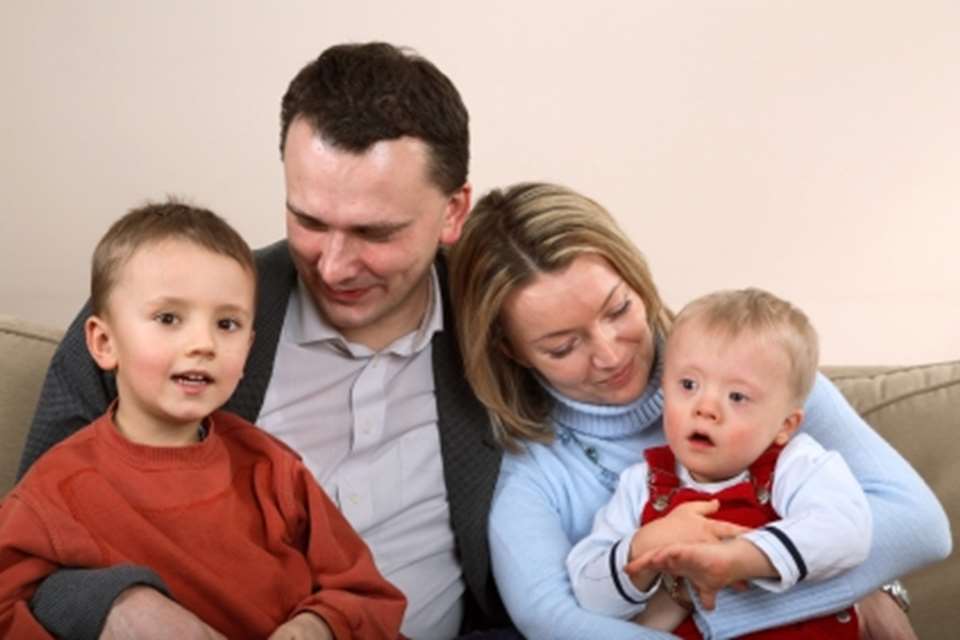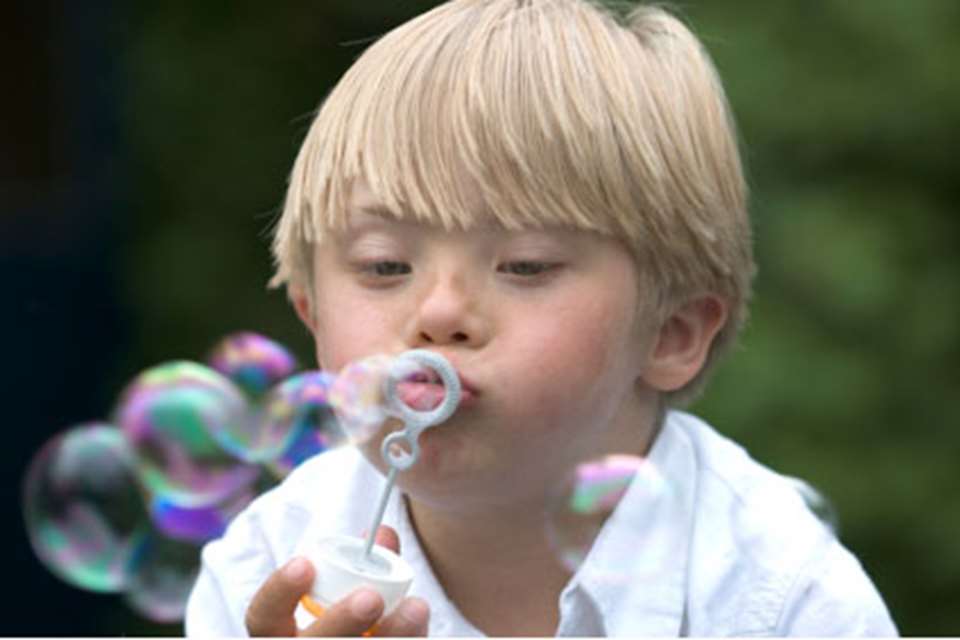A Unique Child: Inclusion - In reverse
Monday, August 11, 2014
Children with and without disabilities are learning how to socialise together in a SEND centre welcoming all of them.

Disabled and mainstream children, aged four to 16, learn how to interact and socialise with each other at Kidscene out-of-school and holiday club in Edinburgh.
Run by the charity Royal Blind and based at its school campus, Kidscene caters for children with a wide variety of disabilities, including multiple disabilities and visual impairments (MDVI), autism, Asperger syndrome, global learning delays and cerebral palsy.
Opened in 2012, the club, which operates on a staff-to-child ratio of 1:5, is registered for 60 children and the holiday club for 70 children.
Kidscene follows a 'reverse- integration model', which means that while the club's primary purpose is to support children and young people with disabilities, it actively encourages those without special needs to attend the setting.
Manager Jan Thomson explains, 'A benefit of this is that disabled children learn that not everyone understands them, which helps them develop patience, because they are used to being around specialist teachers, support workers and their parents.
'Mainstream children also learn from disabled children about how to interact and deal with people who are different from themselves. Some of the children have learned sign language as a way of communicating.
'Parents whose mainstream children attend the club tell us that they believe they learn different things at Kidscene as opposed to a mainstream-only club.'
Another benefit of the club is that siblings, where one is disabled or has special needs, can attend together and take part in the same activities.
COOKERY TO YOGA
At the club, children can access a soft-play area, hydrotherapy pool, three sensory rooms, a sensory garden, messy room, imagination area, chill-out zone and construction area. Also on offer are planned activities, including arts and crafts, cookery, and physical activities. At last year's holiday club, children took part in perfume-making and yoga.
'Staff take the lead from the children when planning activities,' says Ms Thomson. 'They lay out the weekly or fortnightly planning, which includes picking a theme and build on it using the children's ideas.' Previous themes have included a prehistoric week and more recently a Commonwealth Games week.
Children identify what activities they would like to do from the club's ideas book and board, or can make their own suggestions, and activities are adapted to suit their ages and abilities. For example, when making gingerbread men, more able children were encouraged to cut out shapes from the dough by hand, while the less able were given cutters to use.
'Staff work extensively with parents to understand their children's needs. They get to know children really well and learn their likes and dislikes so can easily plan around them,' says Ms Thomson.
'Being able to speak to people with a lot of expertise within the Royal Blind school, such as physiotherapists and facilities managers, also helps when planning trips.'
Arranging outings takes a lot of planning, particularly when visiting a new place, but the club has found people to be very accommodating to the children's needs.
'Last summer, during our visit to the seaside, the owner of a fish and chip shop let all the children sit inside at tables, despite many of them only eating their own packed lunches, as he understood about their dietary requirements', says Ms Thomson.
'Recently, The Yard in Edinburgh, an adventure playground for children with disabilities, opened its doors to Kidscene's children, including mainstream children for the first time.' Other trips have included a visit to a trampoline centre and stables for horse riding.
Due to the popularity of last summer's holiday club, this year's club will open for an additional two weeks. Like the after-school club, activities are based on a weekly theme, including 'Fun at the Fair', which will see children enjoy a Mad Hatter's tea party.
It will end with a 'Madness and Mayhem' week, with children and staff swapping roles for a day and wearing their clothes backwards.
- www.royalblind.org/child-care
CASE STUDY: JIMMY MOYER
Eight-year-old Jimmy Moyer, who was diagnosed with autism at the age of two and a half, attends Kidscene once a week after school.
Since starting at the club in November 2012, he has become more confident and finds it easier to interact with others, according to his mum Sarah.
She explains, 'Jimmy lives in his own little world and rarely breaks out of it. He recites books - Dr Seuss is his favourite - over and over again to avoid conversations and having to socialise.
'He finds walking into a room of strangers or a crowded place very difficult at first. He doesn't like attention or singing, and will not go to birthday parties, including his own, if there are too many people.
'In everyday life, this means sticking to a routine as much as possible as change can lead to difficult outbursts.'
Ms Moyer says Jimmy feels safe at Kidscene because the environment is predictable and he loves being with other children that are like him because he doesn't feel threatened.
'It truly is a joy to see his little face light up on a Thursday when he realises that the next day he will take a taxi after school to Kidscene,' she adds.
[asset_library_tag 523,Download the PDF]






